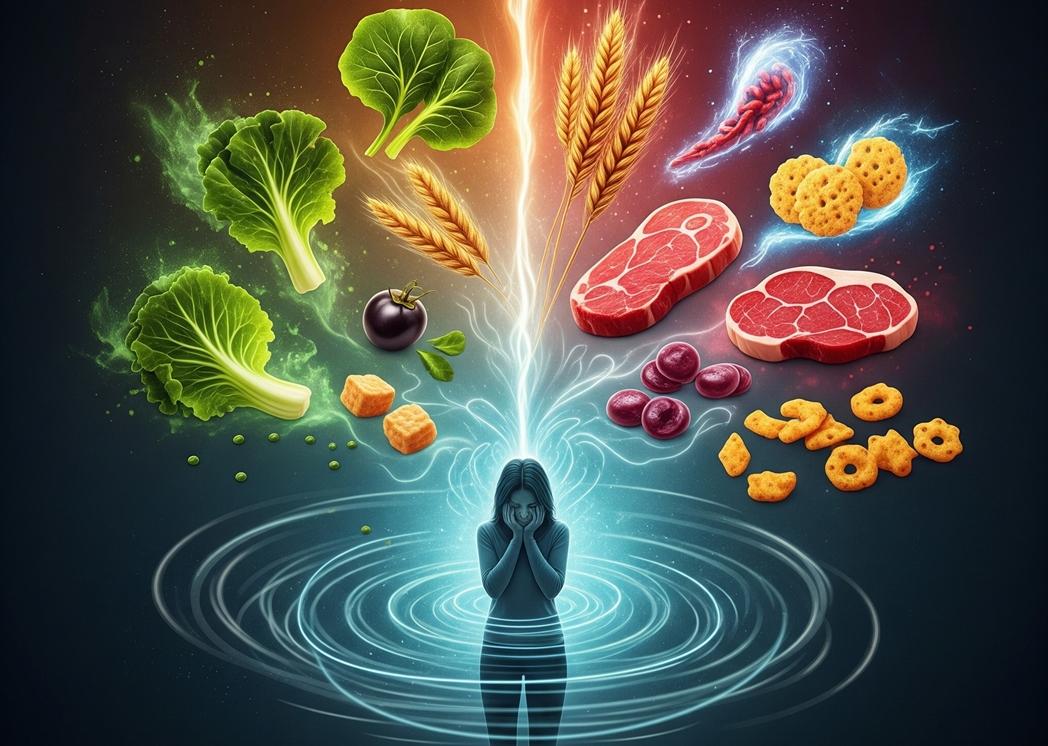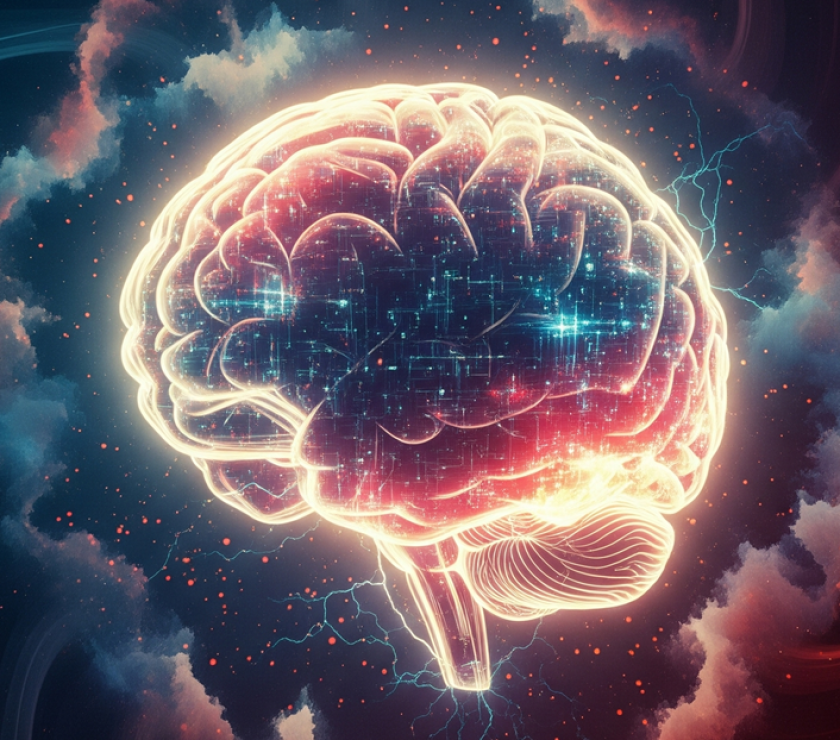How Food Impacts Anxiety
Anxiety is a prevalent concern in our fast-paced world, and here in Dehradun, while the serene environment offers some respite, many still grapple with its effects. While stress management techniques and lifestyle adjustments are crucial, an often-underestimated factor in managing anxiety is our diet. This blog delves into the powerful connection between food and anxiety, providing SEO-friendly insights for those seeking natural ways to foster a calmer mind amidst the beauty of Uttarakhand.


The Gut-Brain Axis: Your Second Brain’s Role in Anxiety
Did you know your gut has a significant influence on your mental well-being? Known as the “second brain,” your gut is home to trillions of bacteria forming the gut microbiome. This intricate ecosystem communicates bidirectionally with your brain via the vagus nerve, a critical component of the gut-brain axis.
An imbalance in gut bacteria, often stemming from poor dietary choices, can disrupt this vital communication pathway. Inflammation in the gut, for instance, can send signals to the brain that trigger anxiety responses. Furthermore, a significant portion of serotonin, a neurotransmitter crucial for mood regulation, is produced in the gut. An unhealthy gut may lead to lower serotonin levels, potentially increasing vulnerability to anxiety. Maintaining a healthy gut microbiome is therefore a key element in managing anxiety naturally.
The Anxiety-Provoking Power of Processed Foods
In our busy Dehradun lives, convenience often leads us to processed foods. However, these options, typically loaded with unhealthy fats, refined sugars, and artificial additives, can significantly contribute to anxiety.
- Inflammation Triggers: Processed foods are often pro-inflammatory, disrupting the delicate balance of your gut microbiome and promoting systemic inflammation that can impact brain function and mood.
- Blood Sugar Rollercoaster: The high sugar content in many processed snacks and beverages can cause rapid spikes and subsequent crashes in blood sugar levels. These fluctuations can manifest as anxiety symptoms like jitters, irritability, and difficulty focusing, disrupting your peace of mind in Dehradun’s tranquil environment.
- Nutrient Depletion: Diets heavy in processed foods often lack essential nutrients like B vitamins, magnesium, and omega-3 fatty acids, all vital for optimal brain health and emotional well-being.
Nourishing Your Calm: Anti-Anxiety Foods for Your Dehradun Kitchen
Embracing a diet rich in whole, unprocessed foods can significantly improve your gut health and contribute to a more balanced emotional state. Consider incorporating these anxiety-reducing foods into your daily meals in Dehradun:
- Local, Seasonal Fruits and Vegetables: Abundant in Uttarakhand, these provide essential vitamins, minerals, and antioxidants that combat inflammation and support overall health. Think of crisp apples, juicy peaches, fresh leafy greens, and vibrant root vegetables.
- Whole Grains for Steady Energy: Opt for locally sourced whole wheat flour for chapatis, include oats in your breakfast, and choose brown rice over white. These provide a sustained release of energy, preventing blood sugar dips that can trigger anxiety.
- Lean Proteins from Nature’s Bounty: Include lentils and beans, staples in Indian cuisine, as well as sustainably sourced fish and locally raised poultry in moderation. These provide essential amino acids for neurotransmitter production.
- Healthy Fats: The Brain’s Best Friend: Incorporate sources of omega-3 fatty acids like walnuts (abundant in the Himalayan region), flaxseeds, and fatty fish. Include good sources of monounsaturated fats like locally produced mustard oil and avocados.
- Embrace Fermented Foods: Enhance your gut health with natural yogurt (dahi), homemade pickles (achar), and other fermented preparations that introduce beneficial bacteria to your gut.
Mindful Eating: Savoring Serenity in Dehradun
Beyond the types of food we consume, the way we eat also profoundly impacts our well-being. Practice mindful eating by paying attention to your hunger and fullness cues, savoring each bite, and minimizing distractions during meals. This can reduce stress associated with eating, improve digestion, and foster a greater sense of calm and control over your food choices. Eating slowly and consciously can also help you connect with the nourishment your body is receiving, promoting a more peaceful state of mind.
In conclusion, the connection between food and anxiety is undeniable.



